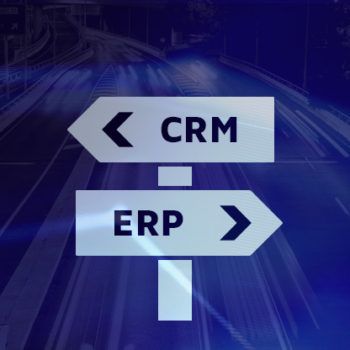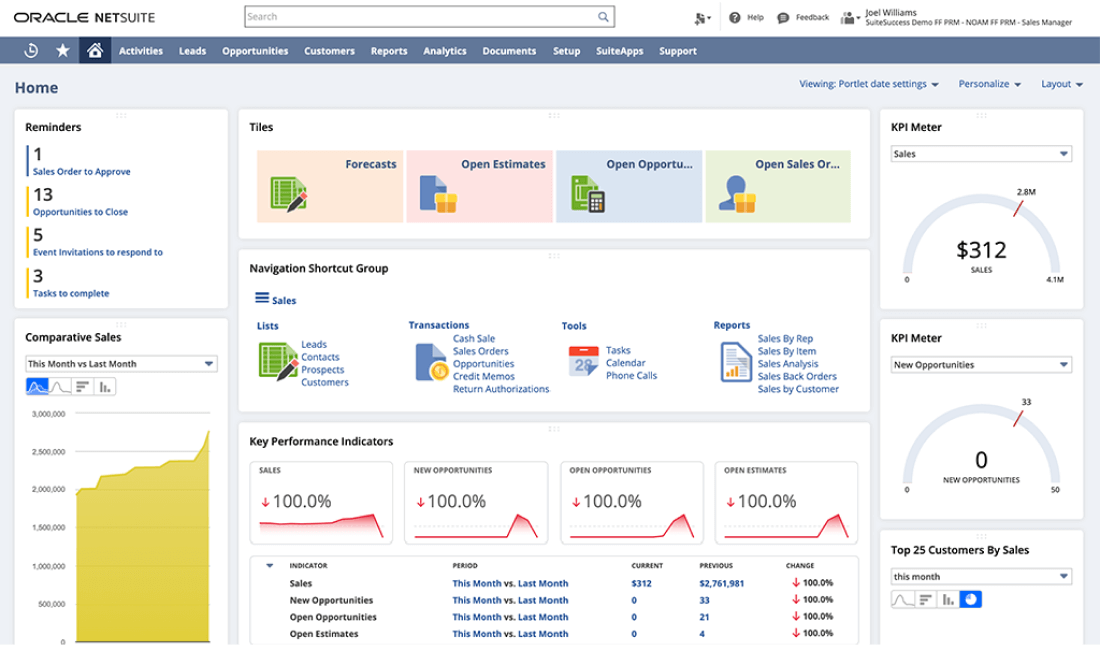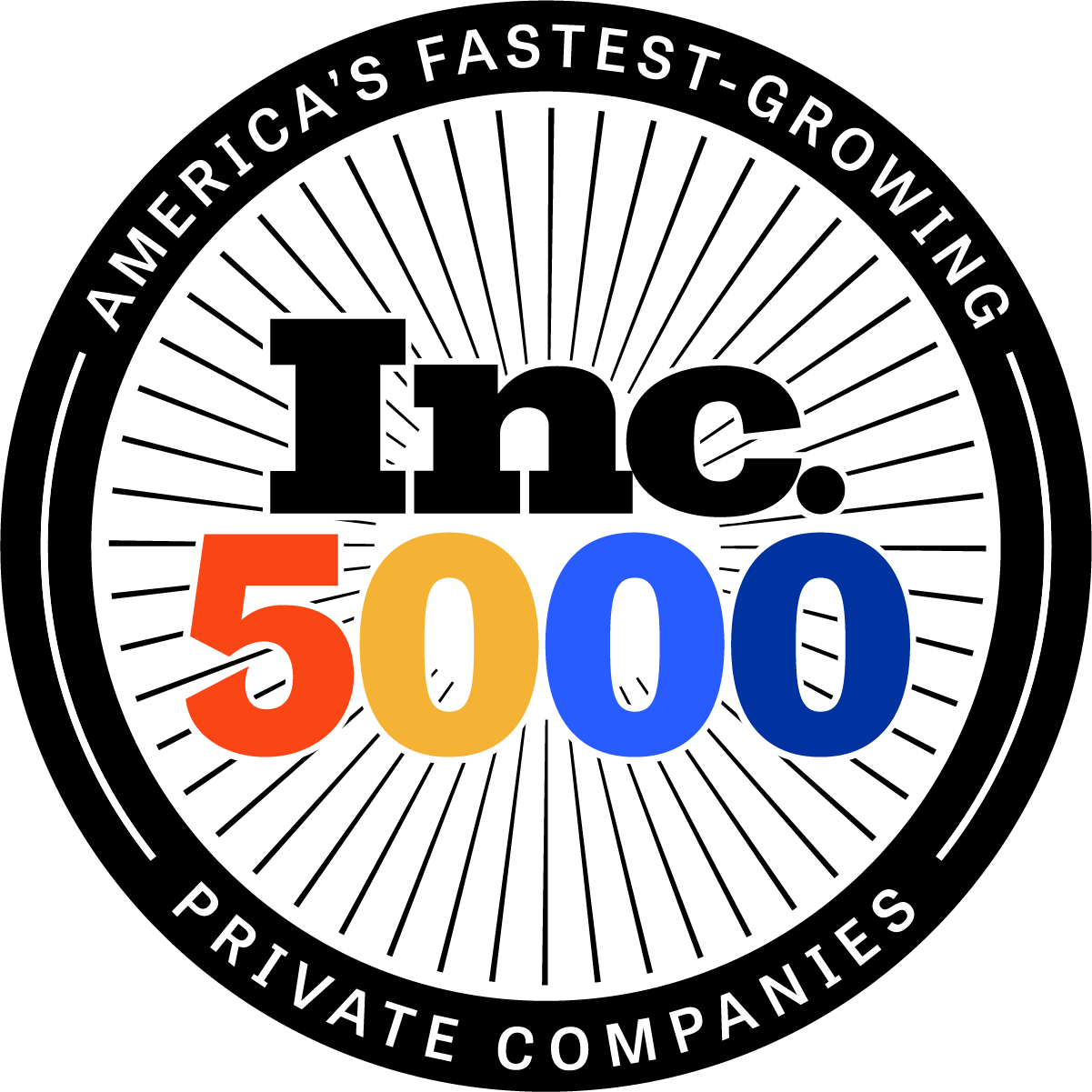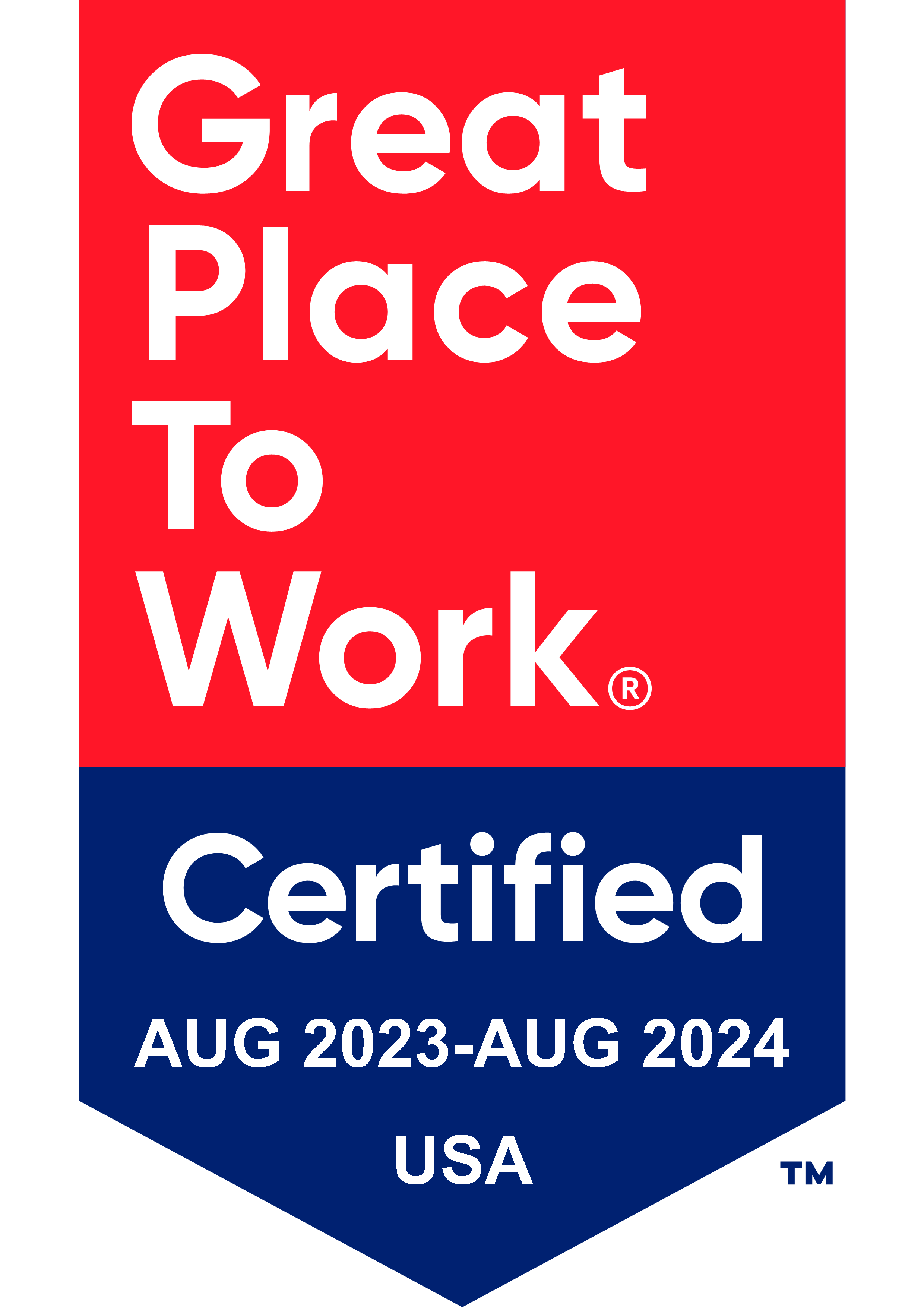If you're currently exploring NetSuite ERP and wondering if NetSuite CRM is a good fit for your sales and marketing organization, you're in the right spot. This blog post offers a concise overview of NetSuite CRM, its compatibility with NetSuite ERP, and the key features and benefits it brings to sales and marketing organizations considering NetSuite ERP.
What is CRM Software
CRM software is a comprehensive system that centralizes all customer and prospect information in a database. It enables sales, marketing, and support teams to effectively utilize the same information for their department-specific interactions. CRM software is equipped with features such as salesforce automation (SFA), customer service management (case management), and marketing automation, including quotes, sales forecasting, partner management, managing sales commission structures, and much more.
How is NetSuite CRM Related to NetSuite ERP?
NetSuite CRM plays a crucial role as part of the comprehensive NetSuite package, a cloud-based software suite designed to efficiently manage businesses. With its focus on customer relationships, sales processes, and customer data within the NetSuite ecosystem, NetSuite CRM seamlessly integrates with other modules like financial management, inventory management, and e-commerce (SuiteCommerce). This integration ensures a unified view of customer information across different departments, promoting smooth data flow and operational processes within the organization. By combining customer relationship management with enterprise resource planning (ERP), businesses can streamline operations, enhance data visibility, and deliver exceptional customer experiences.
What is the Difference Between CRM and ERP?
NetSuite serves as both a CRM and an ERP system, working in tandem to efficiently manage business operations. While CRM focuses on enhancing customer service, marketing, and sales generation by automating customer processes and acquiring customer information, ERP technology streamlines internal functions like inventory management, finance, and HR. By combining CRM and ERP, businesses can unify their operations, make better decisions, handle customer requests, access real-time financial data, and facilitate seamless information flow.
NetSuite CRM Features
Streamlining Customer Relationship Management
NetSuite CRM offers powerful tools and features to streamline customer relationship management. With its intuitive interface and user-friendly design, managing and organizing customer data becomes a breeze. You can easily track and monitor customer interactions, view communication history, and analyze customer behavior to better understand their needs and preferences.
Additionally, NetSuite CRM provides automation capabilities that help automate repetitive tasks, freeing up time for your sales team to focus on building meaningful relationships with customers. With features like lead management, opportunity tracking, and contact management, you can efficiently manage your sales pipeline and ensure that no opportunity slips through the cracks.
Overall, NetSuite CRM streamlines the entire customer relationship management process, enabling you to deliver exceptional customer experiences and drive business growth.
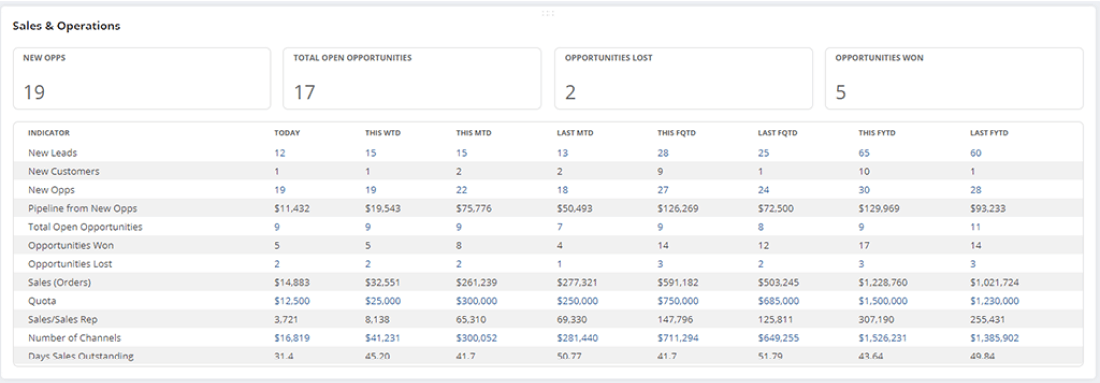
Real-Time Sales and Pipeline Management
One of the key features of NetSuite CRM is its real-time sales and pipeline management capabilities. With real-time visibility into your sales pipeline, you can easily track the progress of deals, identify bottlenecks, and take proactive measures to accelerate the sales cycle.
NetSuite CRM provides comprehensive sales forecasting tools that leverage historical data, industry trends, and predictive analytics to help you make accurate sales projections. By having a clear view of your sales pipeline and accurate forecasts, you can make informed business decisions, allocate resources effectively, and maximize revenue.
Furthermore, NetSuite CRM allows you to collaborate seamlessly with your sales team, enabling you to share important information, assign tasks, and monitor progress in real-time. This fosters teamwork, improves communication, and ensures that everyone is aligned towards achieving sales targets.
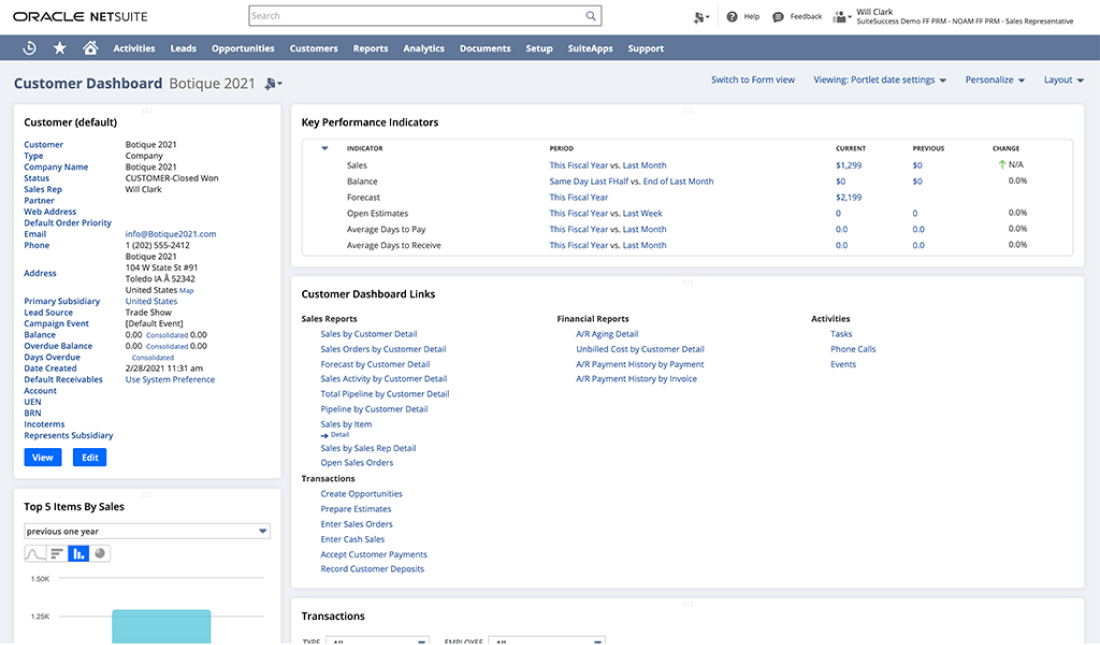
360-Degree Customer View
NetSuite CRM provides a 360-degree customer view, giving you a holistic understanding of each customer's journey and preferences. By consolidating customer data from various touchpoints, including emails, calls, social media interactions, and purchase history, you can gain valuable insights into customer behavior and tailor your marketing and sales strategies accordingly.
With a 360-degree customer view, you can personalize your interactions with customers, anticipate their needs, and provide timely and relevant recommendations. This not only enhances customer satisfaction but also increases the likelihood of repeat business and customer loyalty.
NetSuite CRM also enables you to segment your customer base based on various criteria, such as demographics, purchase history, and engagement level. This allows you to target specific customer segments with tailored marketing campaigns, improving the effectiveness of your marketing efforts and driving higher conversion rates.
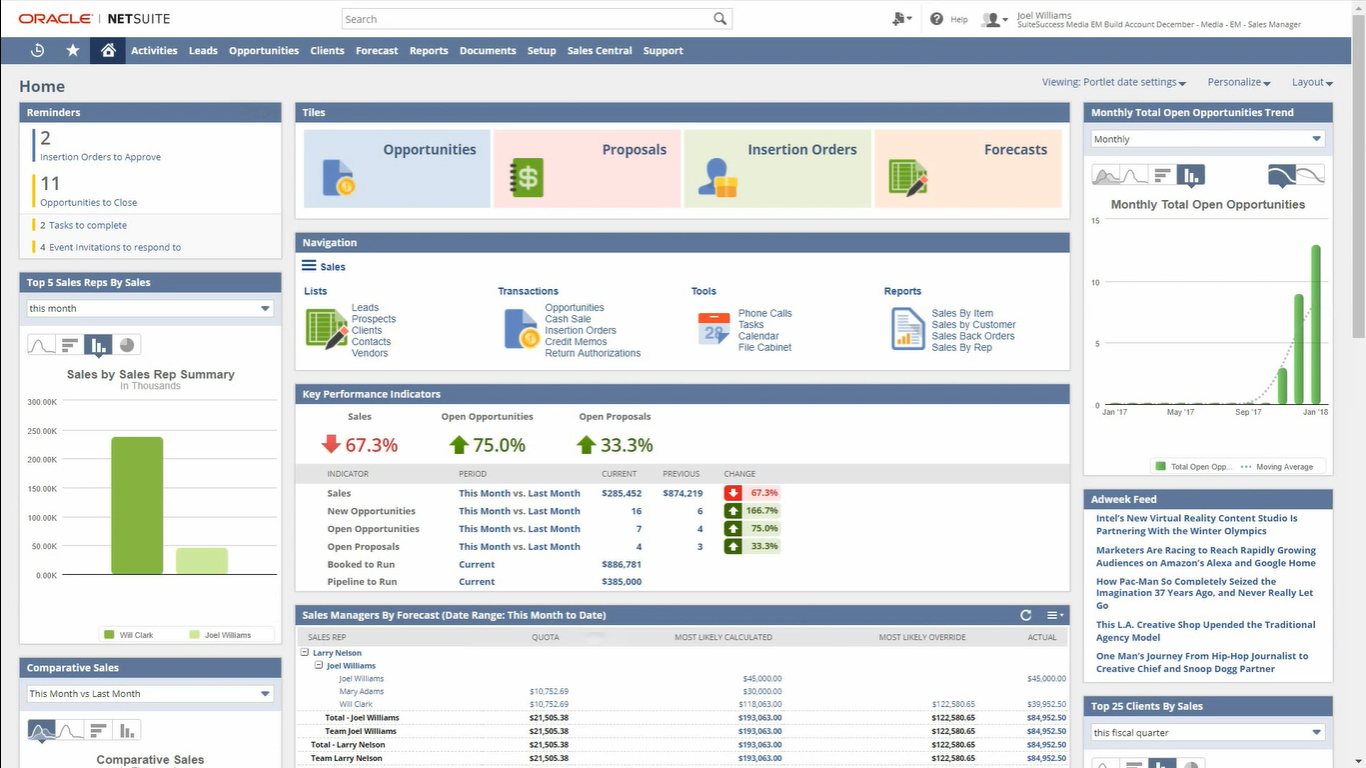
Intelligent Sales Forecasting
NetSuite CRM leverages advanced analytics and machine learning algorithms to provide intelligent sales forecasting capabilities. By analyzing historical sales data, market trends, and customer behavior, it can generate accurate sales forecasts that help you make data-driven decisions and set realistic sales targets.
The intelligent sales forecasting feature in NetSuite CRM takes into account various factors, such as seasonality, market conditions, and historical performance, to provide a comprehensive view of future sales projections. This enables you to allocate resources effectively, optimize inventory levels, and align your sales strategies with market demand.
Moreover, NetSuite CRM allows you to create multiple sales forecasts based on different scenarios, such as best-case, worst-case, and most likely. This flexibility enables you to assess the potential impact of different business scenarios and make informed decisions to mitigate risks and capitalize on opportunities.
Seamless Integration with ERP
NetSuite CRM seamlessly integrates with NetSuite's ERP (Enterprise Resource Planning) system, providing a unified platform for managing your entire business operations. This integration ensures that customer data flows seamlessly between your CRM and ERP systems, eliminating data silos and enabling real-time visibility into customer interactions, sales orders, invoices, and financial data.
With seamless integration, you can streamline your business processes, improve efficiency, and eliminate manual data entry and duplicate data. This not only saves time but also reduces the risk of errors and ensures data accuracy.
Furthermore, the integration between NetSuite CRM and ERP enables you to have a complete view of your customer lifecycle, from lead generation to sales to order fulfillment and support. This end-to-end visibility empowers you to provide a seamless customer experience, improve customer satisfaction, and drive customer retention and loyalty.

